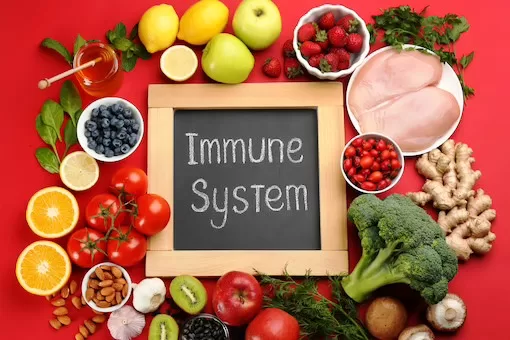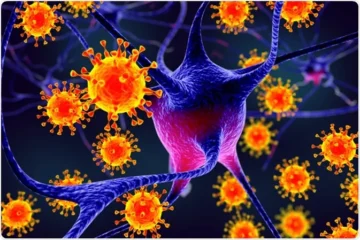A strong immune system is essential for protecting our bodies from illness and disease. While there are many factors that contribute to overall immune health, such as adequate sleep, stress management, and exercise, what we eat plays a significant role in building and maintaining a healthy immune system. Certain foods have been shown to have immune-boosting properties and can help to ward off illness and keep our bodies in tip-top shape. In this article, we will explore some of the best foods for boosting immunity and how they can be incorporated into your diet for a healthier, more resilient immune system.
What is the immune system?
The immune system is a complex network of cells, tissues, and organs that work together to defend the body against foreign invaders, such as viruses, bacteria, and other pathogens. The immune system is constantly monitoring the body for any potential threats and is able to rapidly respond to eliminate or neutralize these invaders before they can cause harm. The immune system is made up of two main branches: the innate immune system, which provides a rapid and non-specific response to potential threats, and the adaptive immune system, which is able to specifically target and eliminate specific invaders. Both branches of the immune system work together to keep us healthy and protected from illness and disease.
What factors can depress the immune system?
There are several factors that can weaken or depress the immune system, making it less effective at protecting the body from illness and disease. Some of these factors include:
- Stress: Chronic stress can suppress the immune system and increase the risk of illness.
- Lack of sleep: Adequate sleep is important for maintaining a strong immune system. Sleep deprivation can weaken the immune response.
- Poor nutrition: A diet lacking in essential vitamins, minerals, and nutrients can weaken the immune system and increase the risk of illness.
- Alcohol consumption: Excessive alcohol consumption can weaken the immune system and increase the risk of illness.
- Smoking: Smoking can suppress the immune system and increase the risk of illness.
- Lack of physical activity: Regular physical activity can help to boost the immune system, while a sedentary lifestyle can weaken it.
- Chronic illness: Chronic medical conditions, such as diabetes or HIV, can weaken the immune system and increase the risk of illness.
- Aging: The immune system naturally becomes less effective with age, increasing the risk of illness.
It’s important to be mindful of these factors and to adopt healthy habits that can help to maintain a strong and resilient immune system. This may include eating a healthy diet, getting enough sleep, managing stress, and engaging in regular physical activity. If you have concerns about your immune system, it’s important to talk to a healthcare provider for a proper evaluation and treatment plan.
Best food to boost immunity
A balanced diet rich in whole foods, vitamins, and minerals can help to boost your immune system. Here are some of the best foods to include in your diet:
- Citrus fruits: Citrus fruits such as oranges, lemons, and grapefruits are rich in vitamin C, which can help to boost the immune system.
- Leafy greens: Leafy greens such as spinach, kale, and collard greens are rich in vitamins and minerals, including iron, calcium, and vitamins A and C, which are all important for immune health.
- Berries: Berries such as strawberries, blueberries, and blackberries are rich in antioxidants and vitamins C and E, which can help to boost the immune system.
- Yogurt: Yogurt is a good source of probiotics, which are beneficial bacteria that can help to support the immune system.
- Almonds: Almonds are rich in vitamin E, a powerful antioxidant that can help to protect cells from damage and improve immune function.
- Garlic: Garlic is believed to have natural antimicrobial properties and can help to boost the immune system.
- Turmeric: Turmeric is a spice that has been used for centuries for its anti-inflammatory and antioxidant properties, and may help to improve immune function.
- Green tea: Green tea is rich in antioxidants, including EGCG, which can help to boost the immune system and protect cells from damage.
It’s important to remember that a balanced diet and healthy lifestyle, including regular physical activity and stress management, are key to boosting the immune system and maintaining overall health. Additionally, it’s important to talk to your doctor before making any changes to your diet, especially if you have any underlying health conditions.
Other effective ways to boost the immune system naturally
In addition to eating a healthy diet, there are many other natural ways to boost the immune system and maintain optimal health. Some of these include:
- Adequate sleep: Getting 7-9 hours of quality sleep each night can help to boost the immune system and improve overall health.
- Regular exercise: Engaging in regular physical activity, such as brisk walking, running, or strength training, can help to boost the immune system and reduce the risk of illness.
- Stress management: Finding healthy ways to manage stress, such as meditation, yoga, or exercise, can help to boost the immune system and reduce the risk of illness.
- Avoid smoking and excessive alcohol consumption: These habits can weaken the immune system and increase the risk of illness.
- Hydration: Drinking enough water can help to support the immune system and improve overall health.
- Probiotics: Consuming probiotics, such as those found in fermented foods like yogurt or kimchi, can help to improve gut health and support the immune system.
- Vitamin D: Vitamin D is important for immune health and can be obtained from natural sources, such as sunlight, or from supplements.
- Herbs and spices: Some herbs and spices, such as garlic, ginger, and turmeric, have been shown to have immune-boosting properties and can be incorporated into your diet for added health benefits.
It’s important to remember that everyone’s immune system is different, and what works for one person may not work for another. It’s best to talk to a healthcare provider before starting any new health regimen to ensure that it’s safe and appropriate for your individual needs.




